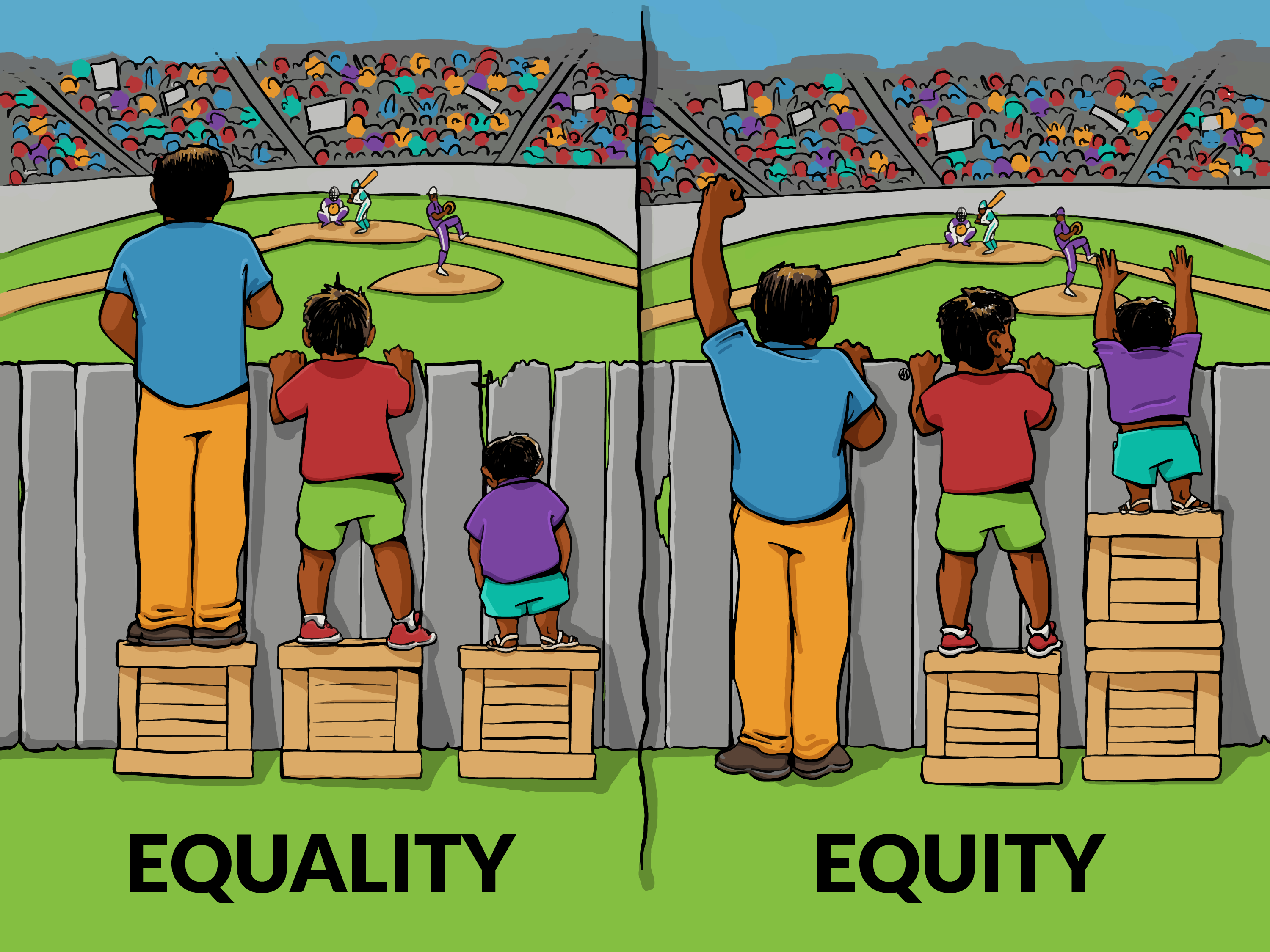| the-pi-guy said:
>Where is the harm? There's no harm. The question is where do you draw the line? People aren't proposing to make college free, and pay off college debt just because they like free stuff. It's about relieving burdens. The guy who has paid off his child's debt, what burdens does he now have? They're not burdened by debt. If you want to make it easier for the future, make college free. If you want to relieve people's burdens, pay off their college debt also. If you want to give people a reward for not having debt, give them a refund. Doing all the above isn't a terrible thing, but it's not the focus that any of the Democrats are going for. The concern seems to be about fairness. There's different dimensions of fairness, equity, equality, and a variety of others and mixes of all of them. Here's the famous picture that describes the two at least:
>We are already talking about "trillions" amount of money, it's already "too expensive". Might as well compensate everyone. This isn't a conservative argument. College debt is less than 2 trillion dollars. That's a huge number, but it's not "too expensive". And if it were too expensive, compensating everyone doesn't make sense. |
"What burdens does he now have? They're not burdened by debt."
It burdened him for years. He could've invested the paid debts into something else. Like a house for his family or a small business, or stocks, or whatever. It is stressing to live pay check to pay check and for the years to go by without investing for your future. It is burdening to live knowing you have paid money that you could've kept for himself. A wealthy guy wouldn't go to such events asking for a compensation, it's humiliating. It is unsympathetic to believe that those who paid off their students debts have done so because of extreme wealth. A lot of them have worked extra hours, extra shifts just to get done, this doesn't come without an ever lasting sacrifice, just because the debt is gone, it doesn't mean there were no negative lasting consequences. This should be taken into consideration.
"t's not "too expensive". And if it were too expensive, compensating everyone doesn't make sense."
Let me rephrase, those who oppose debt forgiveness complain that it's either "too expensive" or "it's not fair for those paid their debts". The "too expensive" argument doesn't hold water because the government is spending a lot more on destructive wars, if you're looking to stop unnecessary spendings, then go after wars & patching the taxing system and you'll be able to afford a lot more than forgiving the debt. Those issues are actually hindering the potential the country has to grow, unlike debt forgiveness, which will push the country forward.
On other hand, the "I paid my debt and I should be compensated" crowd does have a better argument, and they earned the right to voice their opinion and their demands should be taken into consideration. Paying compensations and forgiving the debts combined wouldn't affect the economy, no more than solely forgiving the debt.

















